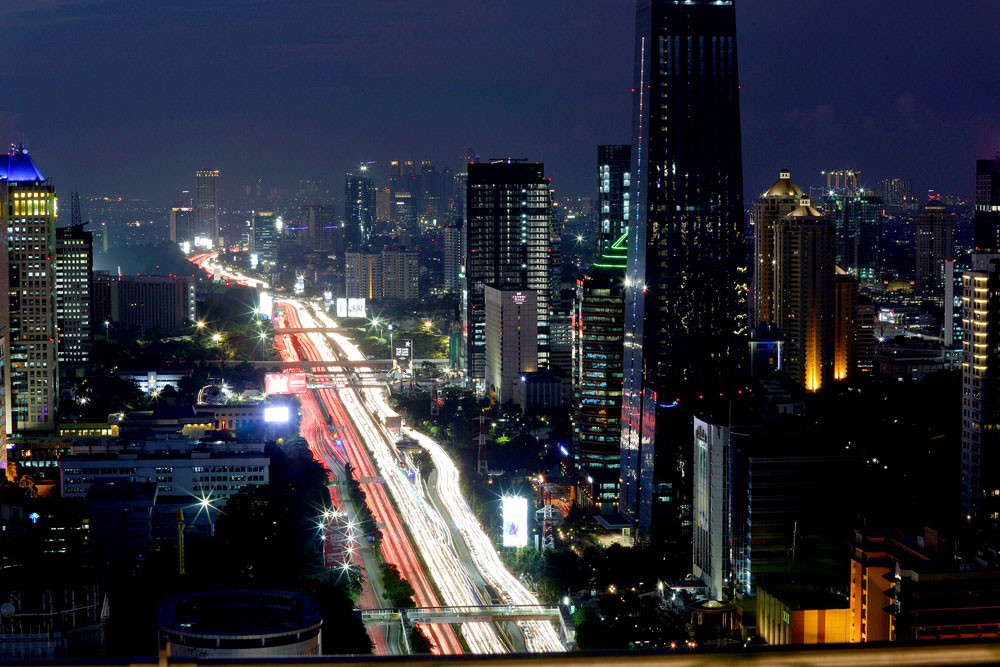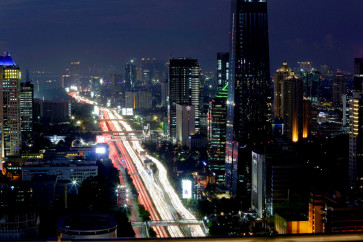Popular Reads
Top Results
Can't find what you're looking for?
View all search resultsPopular Reads
Top Results
Can't find what you're looking for?
View all search resultsTrading mobility to cut pollution: Is it urgent now?
In the end, while efforts have been made, and options will continue to be considered in order to manage Jakarta’s pollution in the short run, it remains necessary to constantly question and discuss the state of urban mobility in Jakarta.
Change text size
Gift Premium Articles
to Anyone
 Street car park: Cars stuck in a traffic jam on Jl. Gatot Subroto in South Jakarta. Regular traffic jams are a common concern among the public as they cannot reach their destinations on time, leading not only to financial loss as a result of missed business deals or targets, but also energy loss as they have to use up more fuel. (The Jakarta Post/Seto Wardhana)
Street car park: Cars stuck in a traffic jam on Jl. Gatot Subroto in South Jakarta. Regular traffic jams are a common concern among the public as they cannot reach their destinations on time, leading not only to financial loss as a result of missed business deals or targets, but also energy loss as they have to use up more fuel. (The Jakarta Post/Seto Wardhana)
J
akarta Governor Anies Baswedan has signed an extension of the odd-even license plate policy, which took effect on Sept. 9, as part of attempts to reduce air pollution plaguing the capital city on a daily basis. The worsening pollution has taken a new twist, especially after a group of individuals sued the Jakarta and central governments for allegedly leaving the problem unaddressed.
Indeed, the pollution in Jakarta, a megacity of more than 10 million inhabitants, reached an unhealthy air quality index (AQI) level of 159 as of the end of July. According to many, the main culprit is private vehicles.
Research on transportation shows that the sector contributes around 20 to 30 percent to the pollution in a country. The researchers have agreed that in order to reduce pollution, policy measures must be exercised to limit the number of private vehicles.
To this end, they have identified and proposed two types of policy: hard and soft measures. Hard measures are typically implemented by directly restricting or penalizing the use of private vehicles.
The odd-even number plate policy now in effect in some parts of Jakarta is a prime example of hard measures.
Jakarta’s commuters have also heard of other hard measures, such as the electronic road pricing and car restrictions based on year of production.
Less familiar nonrestrictive policies encourage shifting to alternative transportation modes. Such soft measures range from subsidizing public transportation to providing travel information to commuters.

















